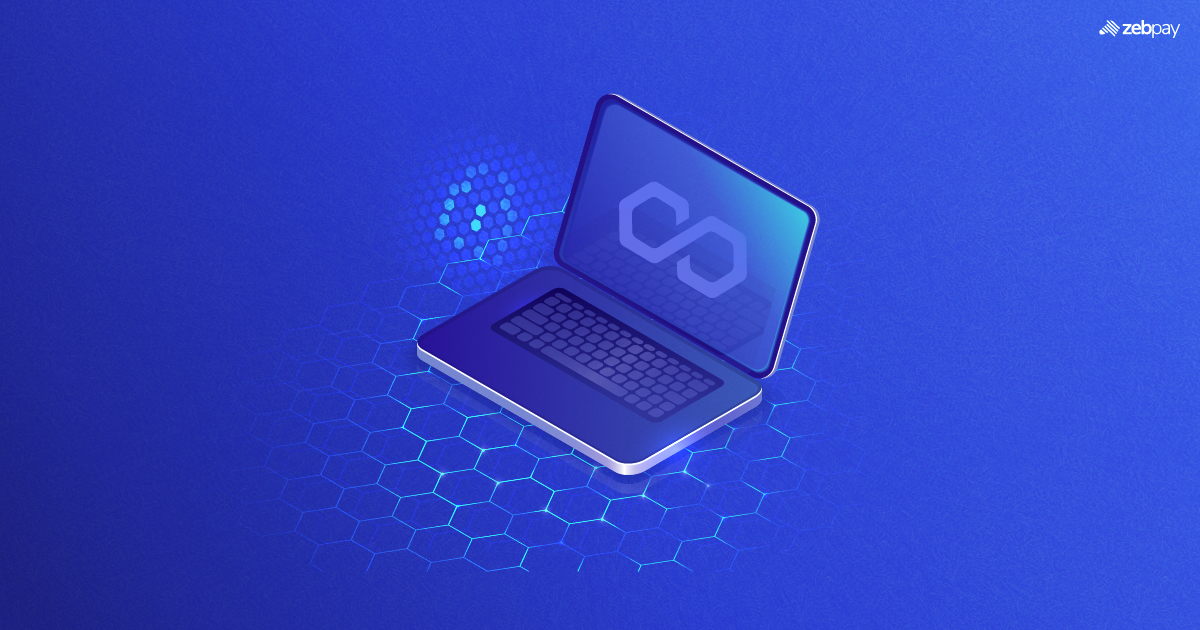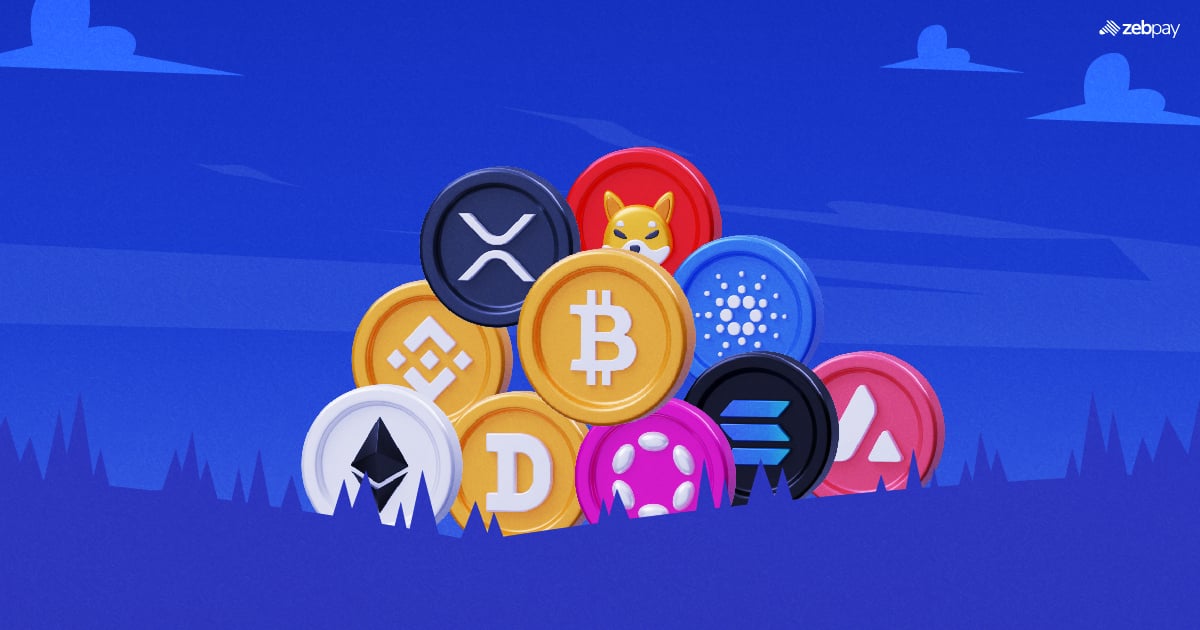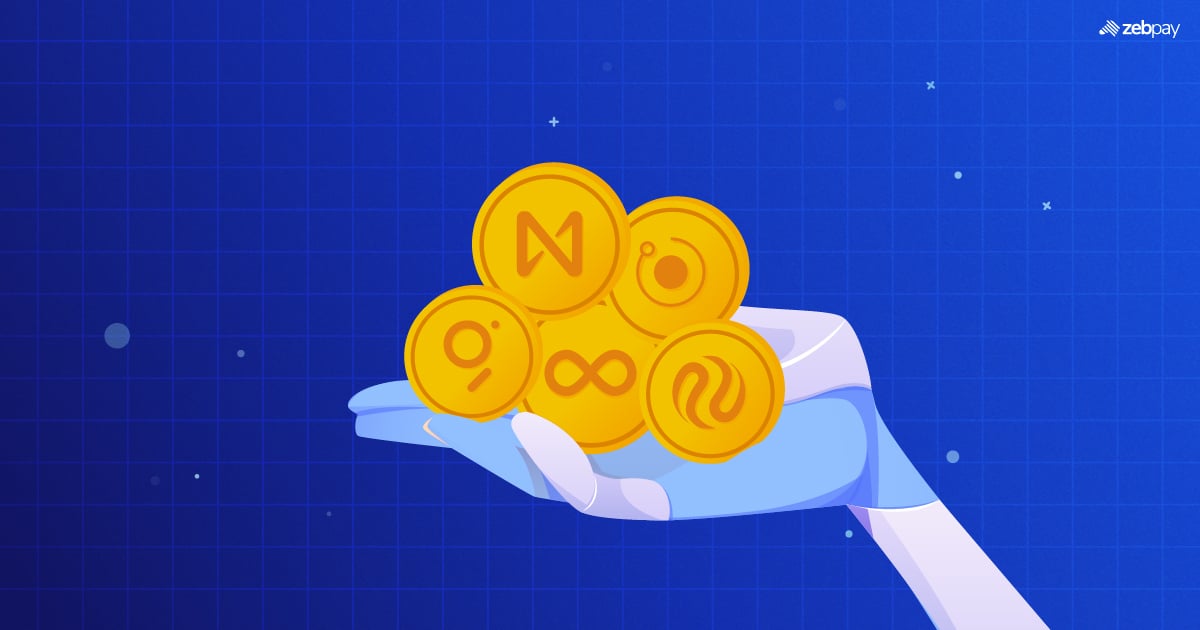Blockchain protocols offer many benefits, such as robust network security and privacy, but are vulnerable to cyberattacks. Organizations must implement best security practices to ensure data security and privacy. Security practices such as Smart contract audits and secure cross-chain bridges can mitigate security risks.
Polygon, previously known as the Matic Network, is a scaling solution that aims to provide solutions to increase the speed and lower the cost of crypto transactions. It wants to help Ethereum grow in size, efficiency, and utility. This protocol employs a Proof-of-Stake (PoS) consensus mechanism for network security and generating more crypto tokens. Polygon also intends to provide a foundation for blockchain networks, allowing developers to create interconnected crypto networks. This article will examine how it ensures robust network security, as it is one of the most trending crypto protocols on the market.
Consensus Mechanism and Network Security
Polygon uses a PoS consensus system to process transactions more quickly and efficiently. Validators are chosen to process transactions based on the number of crypto tokens they own and stake in the network. MATIC is its native token, and validators are paid for their engagement in the network. However, if they act maliciously, they may lose their staked tokens. This feature incentivizes them to operate in the best interests of the Polygon network, making it more secure and trustworthy.
Read more: What is Polygon (MATIC)
The PoS consensus system enables faster and more cost-effective transactions by allowing validators to process transactions without competing for resources. This system is not like the PoW consensus process, which requires computational power to validate blockchain transactions. The PoS system is also more energy-efficient, making it a more sustainable option. It supports Polygon to become a more scalable and safe platform for decentralized applications (dApps).
Read more: How to Earn with Polygon (MATIC)
Security Measures and Auditing

Polygon Smart contract audits are a line-by-line examination of its source code. Polygon projects could lose money and reputation due to Smart contract vulnerabilities. The more audits you do, the less likely hackers will identify flaws in your code. Investors look at network security as a key indicator before deciding to invest in a crypto project. Smart contract audits have numerous benefits, such as:
- Avoid costly errors: Critical security flaws may jeopardize your project, and cyberattacks occur due to code security weaknesses.
- Increase trust: Smart contract audits can build and improve customer trust.
- Optimize your code: Polygon collaborates with its user community to identify security flaws to keep projects safe. Its bounty program is designed to enable users to uncover flaws in the Polygon system. This program will help the Polygon team maintain network security. Payouts for detecting critical flaws can be up to $5,000.
Secure Cross-Chain Bridges and Interoperability
Cross-chain bridges are software tools that enable transactions between different blockchains. These bridges enable the transfer of crypto tokens, non-fungible tokens (NFTs), and other crypto assets between blockchain networks. While most crypto assets are linked to a specific blockchain, cross-chain bridges allow inter-network transactions that power a much larger crypto economy. Cross-chain bridges enable multiple new use cases but are vulnerable to cyberattacks. Polygon claims its bridge is safe to transfer high-value crypto assets. It provides a trustless two-way transaction connection between the Polygon and Ethereum blockchains. Users can utilize the bridge to move tokens across Polygon without intermediaries. It enables developers to connect multiple chains while providing a unified interface for asset and data transfers.
Developer Community and Bug Reporting
Polygon is collaborating with its user community to identify security flaws to keep the Polygon network safe. The bounty program is designed to allow users to uncover security defects in the Polygon network. Polygon can pay up to $5,000 to identify critical security issues. Polygon is excited to collaborate with the security community to identify security flaws to keep its ecosystem safe.
Handling Privacy and Confidentiality
Polygon has introduced a new Polygon ID product based on Zero-Knowledge (ZK) technology, enabling users to authenticate their identities or credentials without disclosing sensitive data. Developers can leverage the new Polygon ID toolset to enable features such as an improved user interface, assist in regulatory compliance, authenticate user identities, and restrict access control to certain sections or features. Zero-knowledge technology is a type of encryption that has been predicted to be one of the significant innovations in the digital asset market as it eliminates the need for users to routinely disclose personal information to various websites or online applications.
Read more: Is MATIC a Good Investment
Industry Partnerships and Security Enhancements
Two security firms, Spearbit and Hexens, are auditing Polygon zkEVM. The benefit of two auditing teams operating separately is that the results from each team are more robust and trustworthy. Hexens’ input will be evaluated against Spearbit’s, and vice versa. Polygon zkEVM has 37 auditable components, and every component will be checked.
Another industry partnership is with CertiK. It provides security for big Polygon projects that are robust enough to withstand a cyberattack and agile enough to keep up with rapid growth. The Polygon teams collaborate with CertiK due to their unrivalled awareness of users’ demands and challenges.
Read more: Benefits of Polygon Matic
Summary
The Polygon network has taken some vital steps to provide robust network security to its users. It uses Smart contract audits to evaluate its codes and identify any issues. Its bridge uses a trustless mechanism to transfer crypto assets and data. It also engages with the user community and has various industry partnerships to help identify and resolve security issues. Overall, it provides a secure ecosystem to foster innovation through cross-chain capabilities.
Read more: MATIC Crypto Price Prediction
To stay up to date with the latest crypto news, visit ZebPay blogs. Click on the button below to trade on ZebPay.







